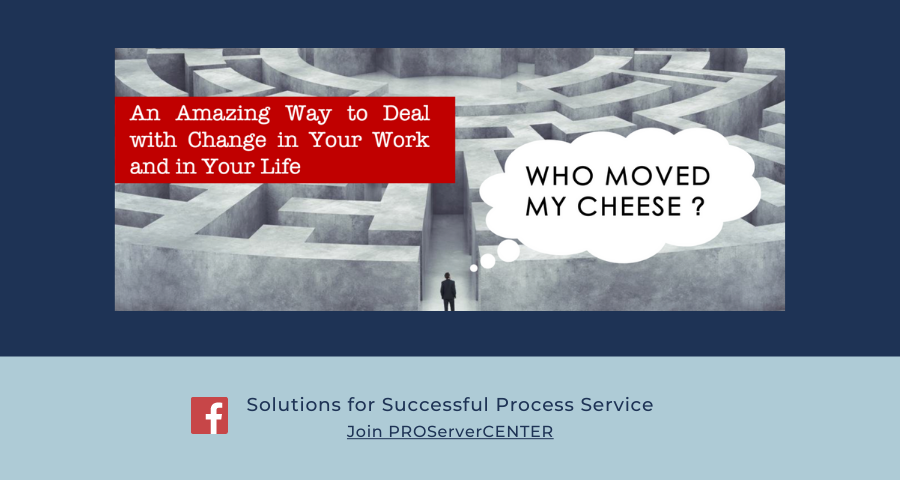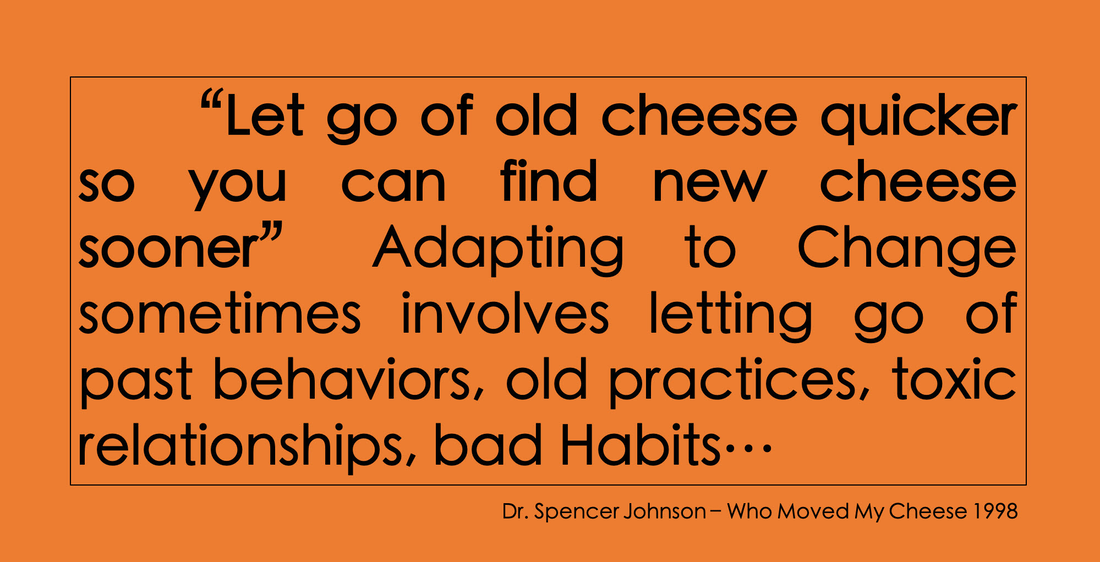|
Author: Brani Andreev, MBA, is an expert in nationwide management of process service, consultant, speaker, and developer of the breakthrough Management Model of the 4Ps™ that ensures the consistent quality of process service.
Do you know that most people who think they are good listeners underperform? By as much as 60 percent? In fact, it turns out that overconfidence actually impedes your success whether you are interacting with your clients, other process servers or the people you are trying to serve. Being too confident actually prevents you from truly understanding what motivates the other side. This, in turn, stops you from being able to use Actionable Empathy™ to get the outcomes you are looking for as a process server or even in your personal relationships.
Truth be told, nothing puts a relationship in jeopardy faster than poor listening skills. It does not matter whether you are talking to another process server, your client, a defendant in a case or your family. People simply do not take a long time to estimate your commitment to listening, particularly since a good deal of communication is nonverbal and wrapped up in physical syntax and delivery. Suffice it to say it is not easy to convince someone you are actually listening when in fact you are not.
So why do most people who think they are good listeners underperform? It is because most do not have the communication skills to recognize that there are actually five levels to listening. Experience shows that if you recognize and master better listening skills, you are more likely to:
Let's explore the five levels of listening and see how they help you get more clients for your process service business, grow it, and find that defendant who is avoiding service:
Level 1: Listening for the Substance: The first level of listening is intermittent listening. What it means is that you are simply listening long enough to get the substance or essence or the main point of what the other side is saying. When you are talking to a new client who just called you and wants legal documents delivered, and you think you have got the basic idea, your ears shut off and refocus on your internal voice, which is formulating a reaction based on your worldview. Though you might not even recognize that you have shut the other side off and actually articulate this reaction, you are engaged in an internal dialogue about how what is being said does not line up with your logic. While "talking to yourself" at the same time when your new client is giving you more information about the process service he needs done, you have just missed out on some very important instructions on how the client expects you to serve the defendant. Level 2: Listening to Rebut: During this next level of listening, you are still not practicing active listening. In fact, you are listening to rebut. This is the stage at which you listen long enough to understand the incoming message until it hits the trigger (i.e., something in the statement or phrase that you can argue against or rebut). Imagine you are talking to another process server from another state who has just sent you a service, and he is trying to explain to you why he needs the respondent personally only served. You interrupt him and are eager to tell him why you feel he is wrong. When you hear a trigger, you just wait for the other side to shut up for long enough so you can tell them why their position is faulty and, by extension, how much smarter you are than they are. These enthusiastic replies undermine communication and the entire relationship. Interjecting with a quick response is a clear indication that you are not listening. How could you be? At this level, you are actually focusing on your agenda at the expense of theirs, and it is, for the most part, obvious to the other side. Level 3: Listening for Logic: The third level of listening involves using inference to try to pin down the internal logic of what is being said, if such logic exists. If this is the other side’s point of view, their conclusion, or their judgment, why does it make sense to them? It is the first step toward truly understanding whom you are actually speaking with. During this level of listening you are paying more attention to what the person who just answered the door is attempting to tell you. Is she trying to say that her spouse is not at home right now while impatiently holding a baby in her hands? Is she ready to move inside and close the door on you before you have asked her when he might be home so that you can deliver the legal documents to him and successfully complete the process service? Level 4: Listening for Emotion: At the fourth level of listening, you are listening for any emotions or issues that may be driving their argument. You are standing at the door of that yellow house for a third time this week, and you are hoping to finally find the person you are looking for to deliver the service of process. You feel lucky this time, lights are all on inside the house and you hear people talking inside, a small child crying loud. These emotions or issues may or may not make sense to you. But at this level, you recognize their significance as the other side may be in a stressful situation if the small child needs their attention. The door suddenly opens and you find a very angry man staring at you. When it is your turn to speak, you might decide to use Labels (See https://www.theprocessservercenter.com/serve-like-fbi-agent.html) to identify the unstated emotions or issues you believe are influencing what they have to say. Here is another situation, this one involving a very satisfied client who gives you an energetic compliment about that successful process service you have just done, you might say something like this: "It seems like you’re very pleased with the outcome of your service of process ...", in hopes that the other side will reveal additional information and perhaps agree to give you a written review on your Google listing of your process service business. Level 5: Listening for Their Point of View: At this level of listening you become a great listener. It is truly this level where you listen for what the other side’s argument says about who they are in the world, using Actionable Empathy™ to do everything you can to see things from their perspective. This communication skill is how you filter the other person’s emotion and logic through a prism of empathy. It is what you should try to do every time you interact with others, regardless whether it is another process server, a defendant you are trying to find or your client. During this stage of listening it is all about getting beyond the cursory level of understanding to a deeper appreciation of their point of view. If you do not understand where the other person is coming from, you do not really understand them at all, making it that much less likely you will get that new client you are hoping for. If you do not understand the other side, you will never influence them. It’s that simple! Though it is difficult to maintain this level of listening every waking moment of every day, you need to be ready and willing to get here when the situation warrants it. The better your listening skills, the more likely it is that you land this new client with volume process service you have always wanted.
Author: Brani Andreev, MBA, is an expert in nationwide management of process service, consultant, speaker, and developer of the breakthrough Management Model of the 4Ps™ that ensures the consistent quality of process service.
Summary: Just like the four characters from Dr. Johnson's parable "Who Moved My Cheese?", Sniff, Hem and Haw, process servers can grow their businesses and find the many clients they are asking for.
A common question among both experienced and new process servers is how to attract more clients and how to find more work to maintain or grow their process service business. In the past several months, particularly during the current health crisis, most process servers have seen their volumes shrink to less than half and many are still struggling to return to the average number of jobs from last year. Even before these difficult times process servers were finding it hard to get ahead of the competition and the need for reliability and professionalism has grown stronger. More than ever process servers are asking for help to build back their volume of services. The question often asked is “What Happened with All the Services I had?” or in the words of Dr. Spencer Johnson “Who Moved My Cheese?” Perhaps sharing this powerful story with you will help you discover yourself in one of the characters and move you in the right direction to build your process service business up again.
Dr. Johnson’s powerful novel “Who Moved My Cheese” is a simple yet memorable story about four characters, 2 mice named Sniff and Scurry and two little people, named Hem and Haw. All of them are living in a twisted maze as they strive to find their favorite Cheese. As you learn the story of Sniff, Scurry, Hem and Haw, make sure to think about yourself as a process server. When you read about the cheese, think about your volume of many services that you are trying to attract. Cheese is a metaphor for all that you want to have in your life, and the Maze represents your process service business or life in general.
Key Idea #1: Your “cheese” or success in process service may be paralyzing you.
The two mice, Sniff and Scurry, don’t think about things too much. Instead, they spend their time running up and down the corridors of their maze, in search of cheese. This seemingly “brainless” way in which these two mice set about achieving their goal is often the most effective method in reaching your own goals. In fact, acting without thinking too much can save you time and energy. If there’s no cheese at the end of a path, for example, Sniff and Scurry simply turn around and scramble down another path – without wasting time being angry or frustrated. At the same time, the little people Hem and Haw were also searching for cheese in the maze, but not because they were hungry. Rather, they thought that finding cheese would make them feel happy and successful. With their more “complex” brains, Hem and Haw worked out strategies to find cheese, memorizing the maze’s dark corners and blind alleys. Yet with all this planning, they still often got confused, and sometimes lost their way. And whenever the pair came up empty-handed, they became depressed, wondering if happiness would ever be attainable. As a process server, do you feel you tend to overcomplicate things? Do you overthink issues or ideas? Do you become overly attached to the status quo in your process service business? Working hard as a process server may finally land you that great new client you were searching for. You feel happy and proud! In the story we are telling, Hem and Haw also found a huge stash of fancy, imported cheese down one corridor, at Cheese Station C. Every day they made sure to wake up early and visit the station for a snack. Yet the pair’s life gradually began to revolve around the feast at Cheese Station C. They felt at home there, and were very proud of it – yet they also began to take it for granted. Like Hem and Haw, when we find success or “our cheese,” we can quickly become dependent on it, so much so that our life revolves only around our “cheese.” Perhaps you find yourself serving legal documents day and night to keep your clients happy. Perhaps you months or years have passed and now you are taking that great client you landed for granted.
Key Idea #2: Good situations never last forever, so be prepared!
So Hem and Haw woke up one morning and were shocked to realize that their cheese was gone. Change always happens, sooner or later. Whether it is because of a global health crisis or an economic downturn or courts being closed, being aware that change always happens, can help you keep a closer eye on your current situation, to better anticipate the change ahead. Once Sniff and Scurry realized that Cheese Station C was almost out of cheese, they moved on without stressing too much about it. And luckily, they found a huge stash at another station, Cheese Station N. Hem and Haw were not so lucky. Unable to cope, the pair kept returning to the empty station, growing increasingly hungry, depressed and weak. Take a lesson from these two “little people”: The less you hem and haw and the sooner you adapt to change, the better off you’ll be. Key Idea #3: Visualizing your goals helps you push through the fear that keeps you from dealing with change. Why do so many process servers (and many of us, in general), just like Hem and Haw, get blindsided by big changes? It’s fear. Fear is what makes confronting change so difficult. After all, change requires you to cope with a new situation and grapple with a new set of rules. That can be both disorienting and frustrating, so it’s natural to be scared of change. As long as you’re afraid of leaving your comfort zone, things will never get better. For example, once they came to grips with the empty Cheese Station C, Hem and Haw had to venture again into the maze to find food. They worried that they might get lost, or find themselves in a blind alley with no way out. Even though Hem and Haw were hungry, they were still too fearful to explore new paths in the maze. Instead, they smashed down the walls of Cheese Station C to see if there was something to eat behind them! But all in vain. Haw eventually discovered a good way to deal with his fear. He visualized himself sitting atop a huge wedge of his favorite cheese, soft-rind French Brie. Indeed, visualizing your goal in vivid detail, for example to get more services, to attract new clients, to build your process service, will actually increase your desire to attain it. So if you find yourself stuck, or you can’t tame your fear, visualize your goal. That will stoke your desire and give you the energy to move forward.
Key Idea #4: Dare to move in a new direction and things will get better.
After visualizing his goal, Haw moved on to find new cheese. But Hem refused to budge. He stayed at the empty cheese station, angry and emaciated, and crucially, far too afraid to go out and search for cheese. At the same time, Haw’s experience improved dramatically. When you move in a new direction, you learn how to better embrace change. Instead of fearing the difficult times and complaining about it, work harder as a process server. Take extra care of the few clients you have, be reliable at all costs. Take a little time to get further training or improve systems in your process service business. Ask us for help! Key Idea #5: Use the lessons you’ve learned from this “cheesy” parable to reach your own goals as a process server! So how can you apply the lessons of this parable to the benefit of your process service business or even your personal life?
The experience of the “little people” and mice can teach you to let go of fear, and be on the lookout for new opportunities to grow and sustain your process service business. Just consider how our parable ends. Even though there was plenty of cheese at Cheese Station N, Haw – having learned his lesson – kept exploring the maze, looking for other stashes. Indeed, what works today won’t necessarily work tomorrow. As the environment changes, your process service business needs to change, too – or you’ll be left behind. Don’t Let Your Fears Hold You Back
Author: Brani Andreev, MBA, is an expert in nationwide management of process service, consultant, speaker, and developer of the breakthrough Management Model of the 4Ps™ that ensures the consistent quality of process service.
Rarely anyone hears about process servers in the media unless there is a problem... Media covers topics that range from "a process server got shot in..." to changes in legislation due to improper service of process. Then there are the articles that mention "sewer" service and the implications on people affected by "bad" process servers. So how do we change that? How do we speak up for the thousands of great process servers who perform their duties and diligently serve the legal documents to help people exercise their Constitutional right to be heard and to defend themselves? Two articles from DCist this week are particularly disturbing to all professional process servers as the word "sewer service" popped up quite a few times in them. The first article "Thousands of D.C. renters are evicted every year. Do they all know to show up to court?" describes a months-long investigative project that turned up more than 600 cases in just two months where two process servers filed affidavits containing discrepancies. The result was that tenants were not properly notified of their court hearing dates and had little time to properly defend themselves. The article further addresses the fact that there is no mechanism in place in D.C. to check whether process servers are truthful in their affidavits and have accurately delivered the summonses. The second article "D.C. Council strengthens requirements for notice of eviction cases" follows up on the actions taken by D.C. Council to remedy the situation with sewer service and unanimously approve a new measure requiring landlords to provide photographic evidence that tenants have been given proper notice of evictions filed against them. This article further points out that this amendment came in response to the lengthy investigation as described in the first article. The Council is also planning on moving forward with additional legislation and a broader permanent measure in order to reconsider how to regulate the process service industry. Emergency Legislation Does Not Help Process Servers It is not a surprise that legislators move in to address issues whenever they arise as is the case in D.C. after the months-long investigation that uncovered wrongful tenants evictions due to sewer service. If self-regulation is not possible in the industry, then government as in this case has to act and fill in the gaps with what looks like an emergency legislation or legislation that arises from improper service of process. Such legislation is usually not beneficial to most process servers and does not provide a meaningful method in incentivizing process servers who diligently perform their duties. Sewer Service Media Coverage Does Not Improve Process Servers Reputation In addition to the emergency legislation that often comes out following media coverage of sewer process service, the effect on the reputation of all process servers is at stake. Both articles mentioned above make general statements that tend to imply that the process service industry is riddled by sewer service. The articles also lead us to believe that if it is not for the efforts of legislators, process servers will continue to fake service and provide false affidavits of service to the courts. None of the two articles emphasize on the fact that the sewer services that led to problems with tenants evictions in D.C. were the product of just two process servers.
Sewer Process Servers in NAPPS?
Prompted by a hint from a process server, the Process Server Center completed an independent research and confirmed that at least one of the process servers mentioned in these two articles is a current member "proudly" shown and marketed on the website of the National Association of Professional Process Servers (NAPPS). This fact itself is very troublesome as it further fuels the assumptions made by the two articles. It further leads us to believe that it is entirely possible that there are many other "sewer" process servers proudly marketing themselves as professional process servers on national process servers platforms. Self-regulation of the Process Service Industry is Necessary The two articles in DCist oblige us to react and stand up for all process servers in the United States who are professional and diligent, honest and hard-working. At the Process Server Center we are very disturbed by the findings described in the two articles and we strongly believe that all tenants will be properly notified of a pending case against them if they were being served by one of the many professional process servers in the country. Why legislation to correct improper service of process always targets process servers? Are law firms, paralegals and clients, in general, not responsible for selecting, hiring and managing these same process servers? At the Process Server Center we believe that the process service industry needs to advance nationally as an industry. We believe that self-regulation is the best approach in regulating not only process servers but also process service managers, lawyers, paralegals and legal assistants who manage, instruct and oversee process servers. We aim to change the way clients select process servers and offer a practical solution to find process servers based on their qualities and prior service record. We believe that self-regulation is always better than emergency regulation and we offer a progressive approach to limit the ease of entry to the process server profession, and award the truly professional process servers with the reputation and increased fees they deserve. Perhaps the time will come soon when media coverage would also tell us the story of the many great professional process servers throughout the country and we will be proud to read about them! FIND OUT HOW WE HELP ADVANCE PROCESS SERVICE |
|
|
PROServerLIST helps clients hire the Best Process Servers - Pre-Screened and Certified |
|
THE PROCESS SERVER CENTER | PROServerCENTER |
✆ 917-409-7046
|
FOLLOW US
|
|
|
|
|
Copyright © 2017 - 2020 The PROCESS SERVER CENTER | All Rights Reserved







 RSS Feed
RSS Feed
